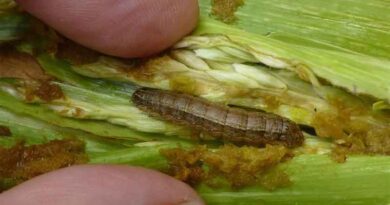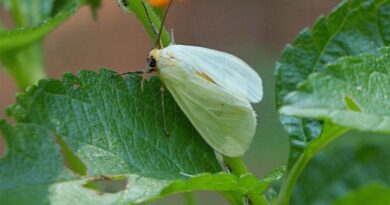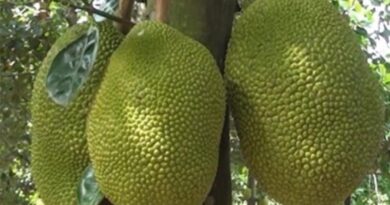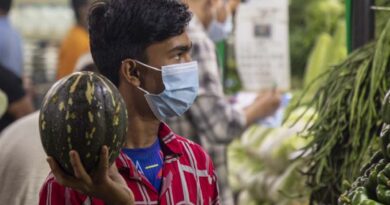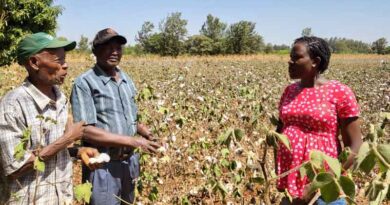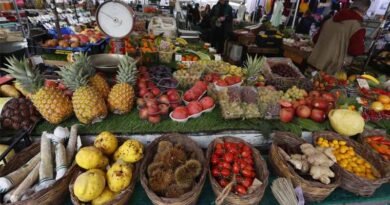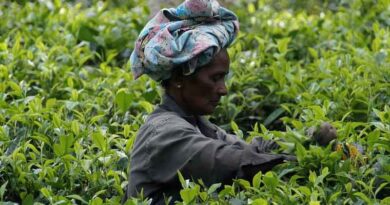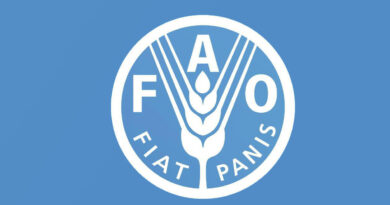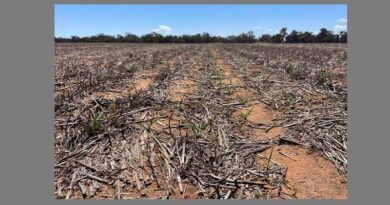Pesticide-free crop protection yields up to US$ 20 billion/year benefits in Asia-Pacific region
01 September 2020, Egham, UK: Scientists have estimated for the first time how nature-based solutions for agricultural pest control deliver US$ 14.6 to US$ 19.5 billion annually across 23 countries in the Asia-Pacific region.
Read: Building the post COVID-19 resilience for Africa’s coffee sector
The new research, published in the journal Nature Ecology & Evolution, suggests that non-chemical crop protection (or biological control) delivers economic dividends that far surpass those attained through improved “Green Revolution” rice germplasm (estimated at US$ 4.3 billion a year).
The Study
The study, led by Dr Kris Wyckhuys and including contributions from CABI’s Dr Matthew Cock and Dr Frances Williams on the data collection, unveils the magnitude and macro-economic relevance of biodiversity-based contributions to productivity growth in non-rice crops over a 100-year period between 1918 and 2018.
Scientifically-guided biological control of 43 exotic invertebrate pests allowed for between 73% to 100% yield loss recovery in critical food, feed and fibre crops including banana, breadfruit, cassava and coconut.
Dr Wyckhuys said, “The Green Revolution is credited with alleviating famine, mitigating poverty and driving aggregate economic growth since the 1960s – enabled through a tripling of rice output. Cornerstone of the Green Revolution were the ‘packaged’ seed x agro-chemical technologies and biological innovations such as high-yielding, disease-resistant cereal varieties.

Read: Bayer launches Proline® GOLD for premium protection against sclerotinia in canola
“Our research is the first to gauge the financial benefit of using biological control to fight crop pests in the Asia-Pacific region and demonstrates how these ecologically-based approaches promoted rural growth and prosperity in marginal, poorly-endowed, non-rice environments.
“By thus placing agro-ecological innovations on equal footing with input-intensive measures, our work provides lessons for future efforts to mitigate invasive species, restore ecological resilience and sustainably raise output of global agri-food systems.”
The scientists, who show how 75 different biological control agents mitigated 43 pests over a 100-year range, outline how biodiversity-driven ecosystem services underpin food systems and societal wellbeing in the face of environmental change.
Read: Corteva to launch new organic insecticide to Australian market
Biological Control delivered durable Pest control
Co-author Dr Michael Furlong added, “Biological control delivered durable pest control in myriad Asia-Pacific agriculture sectors, permitting yield-loss recoveries up to 73%, 81% and 100% in cassava, banana and coconut crops respectively.
“The ensuing economic dividends are substantial, as pest-induced losses up to US $6.8, $4.3 and $8.2 billion annually for the above crops were offset (at respective values of $5.4-6.8 billion, $1.4-2.2 billion and $3.8-5.5 billion/year, for a conservative to high impact scenario range). As many of the underlying programs were run on a shoestring, the rate of return on biological control science is extraordinary.
“Our work constitutes an empirical demonstration of how insect biological control helped solidify the agrarian foundation of several Asia-Pacific economies and – in doing so – places biological control on an equal footing with other biological innovations such as Green Revolution germplasm.
“Not only does it spotlight its transformative impacts – especially in light of increasing global reliance on chemical pesticides – but it also celebrates the century-long achievements of dedicated, yet often, unacclaimed insect explorers and biological control pioneers.”


